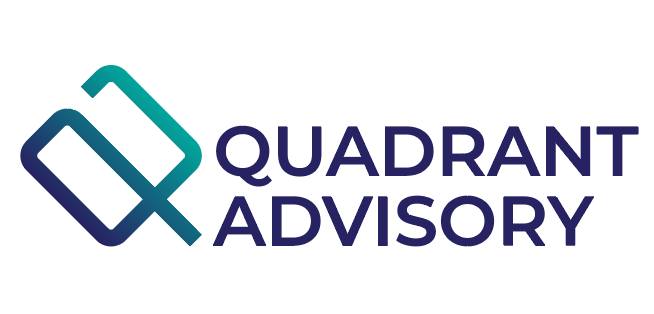Costly Payroll Mistakes And How to Avoid Them
Around 40% of small to mid-sized businesses face penalties from the Internal Revenue Service (IRS) due to payroll errors. The payroll is an essential but underappreciated process in any organization.
Proper payroll management contributes to the overall efficiency of the company and contributes to employee morale. The slightest mistake in the payroll process can send ripples across the organization and affect the lives of your employees outside work hours.
Fortunately, most payroll mistakes can be avoided by simply understanding the nature of these mistakes. Here are some of the common payroll mistakes businesses commit.
Misclassifying Employees

When companies misclassify their employees, it could lead to underpayment or overpayment of wages. Misclassification errors are often the result of determining incorrectly whether an employee should be exempt from overtime or not.
For example, if you hired a marketing officer to work for your company on a salary basis, they are exempted from overtime pay. If you hired a copywriter for a short-term project, they are considered a contractor and are entitled to overtime pay. And these are the penalties for misclassification.
- Classifying a non-exempt as exempt: 100% of unpaid overtime owed to the employee for three years from the employee claim.
- Classifying an exempt as a non-exempt: 1.5% of all wages paid to the employee, 40% of employee FICA taxes, 100% of employer FICA taxes, and a $50 fine for failure to file Form W-2.
Misclassifying employees can be costly for any business, but it’s also one of the easiest to prevent. Having clear documentation about everyone working in the business and clear descriptions of job duties can help you avoid this mistake.
Inaccurate and Disorganized Records

It helps a great deal to have complete and accurate payroll records, especially when the IRS starts an audit on your business or company. Keeping inaccurate, incomplete, and disorganized records can result in costly fines, tax issues, and penalties.
If your business hired five freelance artists to work on some of your marketing projects but failed to send form 1099s to the IRS, you could face penalties of at least $250. If your team could not send over the 1099s of the five contractors, you can expect a $1,259 fine.
This issue can be avoided by simply making sure all payroll records are complete, organized, up-to-date, and maintained. The IRS requires employers to keep employee tax documents for at least four years. These include records of employees who left your company.
Employment Taxes Were Deposited Late

Employers are required to deposit employment taxes, such as the FICA tax and federal income tax, withheld regularly. It could either be monthly or semi-weekly. If your team failed to deposit those employment taxes on time, you might find yourselves dealing with hefty payroll tax penalties.
The penalty could go up to 15% of the unpaid taxes, and it may pile up the longer the employment taxes go undeposited.
Avoiding this specific problem requires your team to be clear on every tax due date. Everyone on the payroll management team must know whether the deposits are on a monthly schedule or semi-weekly.
Payroll Was Based on the Wrong State

If you are running a retail chain or an online company that hires professionals from other states, you must abide by the laws and regulations of the state where your employee is working. Always be familiar with the minimum wage laws of your employees’ state.
If your digital marketing company is based in Washington D.C. and one of your employees is a marketer in Baltimore, you’ll have to pay that person based on the minimum wage of Maryland ($11.75).
Basing employee salaries on the wrong minimum wage laws can lead to the company owing back pays and costly IRS penalties due to inaccurate taxes.
Having organized and accurate payroll records help a great deal in preventing wage inaccuracies caused by using incorrect minimum wages. It helps to organize payroll records and employee files based on the state they are currently working in.
Miscalculated Overtime Pay

In general, shifts can last between four to eight hours or around 40 hours per week for non-exempt employees. However, there will always be situations where non-exempt employees will have to render overtime.
These instances of overtime need to be properly documented so the employee can be compensated correctly. Non-exempt employees have no cap on overtime hours, and their employers are legally obligated to give overtime pay if they worked past 40 hours.
If overtime wages are not given to non-exempt employees, they can file a complaint with the Department of Labor. The employer will then have to pay those overtime wages, a possible $1,000 civil penalty, and other penalties given by the state.
Proper scheduling is a crucial factor in preventing any unnecessary overtime. It’s also essential to meticulously track employee time records and document every instance of overtime. If your company requires non-exempt employees to do overtime, they should be compensated accordingly.
No business or organization wants to spend a significant amount of its revenue on payroll penalties. These payroll errors can also negatively affect employee satisfaction and even the company’s culture.
A company’s management team must be aware of these common payroll mistakes and the various regulations involved. Consider investing in making the payroll process efficient and organized so your business doesn’t have to worry about paying for any mistake.
Quadrant Advisory helps businesses keep their financials organized, well-managed, and secure by offering top-notch bookkeeping services. If you are looking for ways to avoid payroll issues, schedule a free consultation with us today. We would be happy to discuss how our bookkeeping services can help your company.
